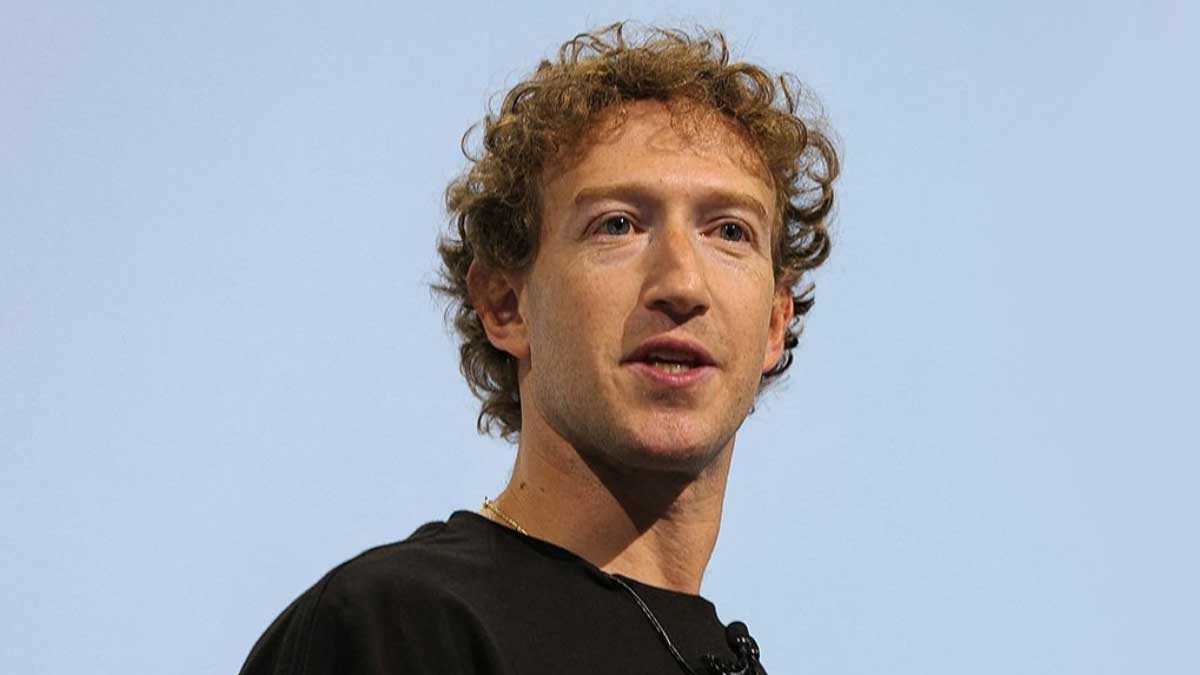- Home
- Billionaires
- Investing Newsletters
- 193CC 1000
- Article Layout 2
- Article Layout 3
- Article Layout 4
- Article Layout 5
- Article Layout 6
- Article Layout 7
- Article Layout 8
- Article Layout 9
- Article Layout 10
- Article Layout 11
- Article Layout 12
- Article Layout 13
- Article Layout 14
- Article Sidebar
- Post Format
- pages
- Archive Layouts
- Post Gallery
- Post Video Background
- Post Review
- Sponsored Post
- Leadership
- Business
- Money
- Small Business
- Innovation
- Shop
Recent Posts
Meta Donates $1 Million to Trump’s Inaugural Fund

Meta, the parent company of Facebook and Instagram, has confirmed a $1 million donation to President-elect Donald Trump’s inaugural fund, marking a notable move by the tech giant as it seeks to navigate a complex and often contentious relationship with Trump. The donation, first reported by The Wall Street Journal, comes on the heels of Meta CEO Mark Zuckerberg’s meeting with Trump at Mar-a-Lago, a gathering viewed as an effort to repair years of tension between the social media company and the former president.
The Journal reported that Meta had communicated its intention to donate to Trump’s inaugural fund before Zuckerberg’s meeting with the president-elect last month. While Meta confirmed the donation, it has remained tight-lipped about its reasoning, offering no details beyond its acknowledgment of the contribution. Public records indicate that this marks the first time Meta has contributed to a U.S. presidential inaugural fund. The company did not make similar donations to Trump’s 2017 inauguration or President Joe Biden’s 2021 event. According to the Federal Election Commission, corporate donations to inaugural committees are permitted and not subject to monetary caps. Inaugural committees, often tasked with organizing celebratory events, can accept large sums from corporations and individuals, a practice that has drawn scrutiny for its potential to grant special access to donors.
Reports suggest that Trump’s Inaugural Committee has set specific perks for top contributors. Donors giving $1 million or more will reportedly receive six to eight tickets to several inaugural events between January 17 and 20, including the January 20 swearing-in ceremony. Additional benefits include access to a reception with Trump’s cabinet nominees, dinner with Vice President-elect JD Vance and his wife, and, for the most significant contributors, a private dinner with Trump and former First Lady Melania Trump. It remains unclear if Zuckerberg or other Meta executives plan to attend these events.
Zuckerberg’s late November meeting with Trump at Mar-a-Lago, which included members of Trump’s incoming administration, has garnered significant attention. While a Meta spokesperson characterized Zuckerberg’s attendance as a gesture of gratitude for the invitation, observers see the meeting as part of a broader effort by the tech executive to rebuild ties with Trump. Stephen Miller, a close Trump aide, stated that during the meeting, Zuckerberg expressed support for Trump’s vision of “national renewal” and described him as an “agent of change and prosperity.”
This attempt to mend fences follows a history of clashes between Trump and Zuckerberg. Trump has repeatedly targeted Meta and Zuckerberg, particularly following his suspension from Facebook and Instagram after the January 6 Capitol riots. At the time, Trump condemned the ban as an affront to free speech and vowed to hold Meta accountable. Although his accounts were reinstated in 2023, Trump has continued his criticism. In March, he called Facebook a greater threat than TikTok, labeling it “an enemy of the people.” Later, he accused Zuckerberg of enabling election fraud, branding him with the nickname “ZUCKERBUCKS.”
Despite these tensions, Zuckerberg has occasionally expressed admiration for Trump, notably praising him after surviving an assassination attempt in July. In a statement to Bloomberg, Zuckerberg called a photo of Trump raising his fist after being grazed by a bullet “one of the most badass things I’ve ever seen in my life.”
The $1 million donation highlights Meta’s complex position as it seeks to balance business interests with political realities. The company has faced criticism from both sides of the political spectrum, with conservatives accusing it of bias and liberals calling for greater accountability in combating misinformation. By contributing to Trump’s inaugural fund, Meta may be attempting to rebuild bridges with a key political figure who has significant influence over public perception of the company.
This strategic move also raises questions about corporate influence in politics. Critics argue that such donations can create an impression of favoritism or access-buying, particularly when tied to exclusive perks for top contributors. Trump’s inaugural fund has previously faced scrutiny for its fundraising practices, including offering access to high-profile events and individuals.
Meta’s relationship with Trump and his administration will likely remain under the spotlight. As the tech industry continues to grapple with issues ranging from content moderation to privacy regulations, maintaining open channels of communication with political leaders is crucial. However, this must be balanced against the need to uphold public trust and avoid perceptions of partisanship.
The donation also signals a broader shift in Meta’s engagement with political figures. After years of strained ties with Trump, this contribution and Zuckerberg’s Mar-a-Lago meeting suggest a willingness to engage directly, even amid ongoing public and private tensions. Whether this approach will yield long-term benefits for Meta remains to be seen, but it underscores the company’s recognition of the importance of political alliances in navigating the ever-evolving tech landscape.
In conclusion, Meta’s $1 million donation to Trump’s inaugural fund is a significant development that reflects the company’s strategic considerations in a polarized political environment. As the relationship between Meta and Trump continues to evolve, the donation serves as a reminder of the intricate interplay between business interests, political power, and public perception.
Recent Posts
Categories
- 193 Countries Consortium Partner1
- 193cc Digital Assets2
- 5G1
- Aerospace & Defense48
- AI37
- Arts3
- Banking & Insurance11
- Big Data3
- Billionaires1,261
- Boats & Planes1
- Business332
- Careers13
- Cars & Bikes79
- CEO Network1
- CFO Network17
- CHRO Network1
- CIO Network1
- Cloud10
- CMO Network18
- Commercial Real Estate7
- Consultant1
- Consumer Tech194
- CxO1
- Cybersecurity73
- Dining1
- Diversity, Equity & Inclusion4
- Education7
- Energy8
- Enterprise Tech29
- Events11
- Fintech1
- Food & Drink2
- Franchises1
- Freelance1
- Future Of Work2
- Games149
- GIG1
- Healthcare79
- Hollywood & Entertainment203
- Houses1
- India’s 1000 Richest1
- Innovation46
- Investing2
- Investing Newsletters4
- Leadership65
- Lifestyle11
- Manufacturing1
- Markets20
- Media327
- Mobile phone1
- Money13
- Personal Finance2
- Policy569
- Real Estate1
- Research6
- Retail1
- Retirement1
- Small Business1
- SportsMoney42
- Style & Beauty1
- Success Income1
- Taxes2
- Travel10
- Uncategorized13
- Vices1
- Watches & Jewelry2
- world's billionaires1,230
- Worlds Richest Self-Made Women2
Related Articles
South Korea Plane Crash: A Tragic Loss and Global Mourning
The tragic plane crash at South Korea’s Muan International Airport on Sunday...
By 193cc Agency CouncilDecember 30, 2024H-1B Visa Debate Splits Trump Allies and Silicon Valley
The debate over H-1B visas has once again become a contentious issue,...
By 193cc Agency CouncilDecember 28, 2024Trump Moves $4B Stake in Truth Social Parent, Stock Drops 6%
Donald Trump recently transferred his 57% stake in Trump Media & Technology...
By 193cc Agency CouncilDecember 20, 2024House Rejects Trump-Backed Funding Bill, Shutdown Looms
The U.S. House of Representatives rejected a new government funding bill on...
By 193cc Agency CouncilDecember 20, 2024















Leave a comment